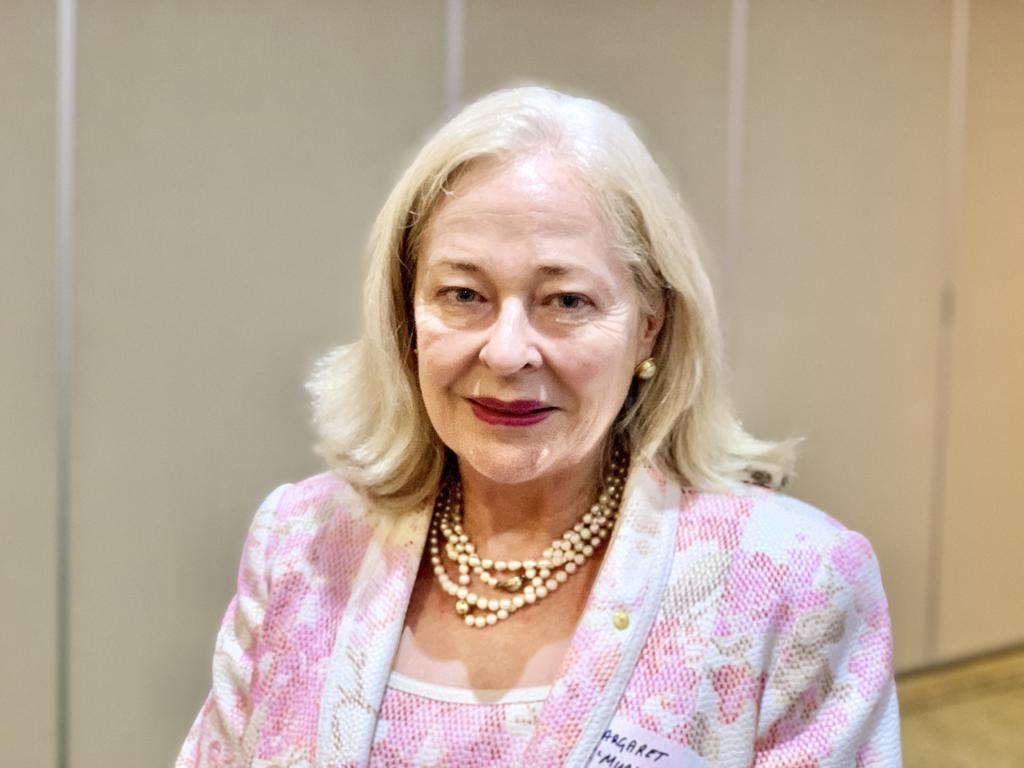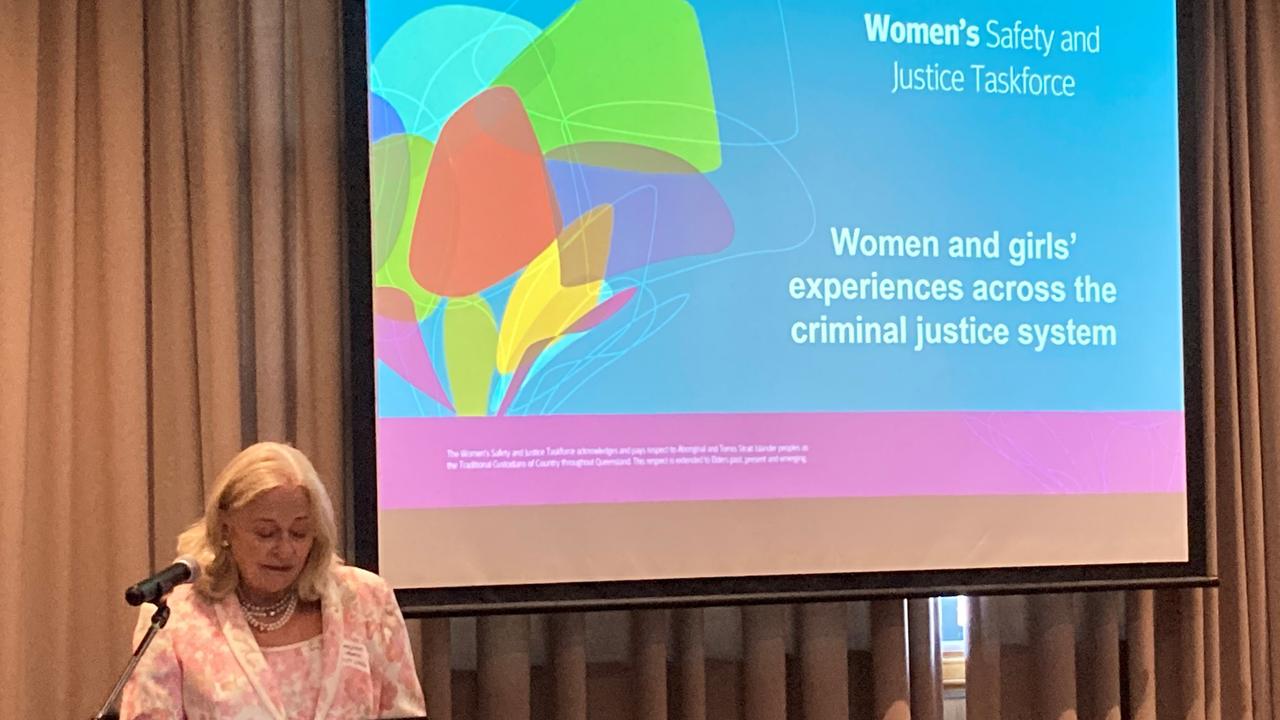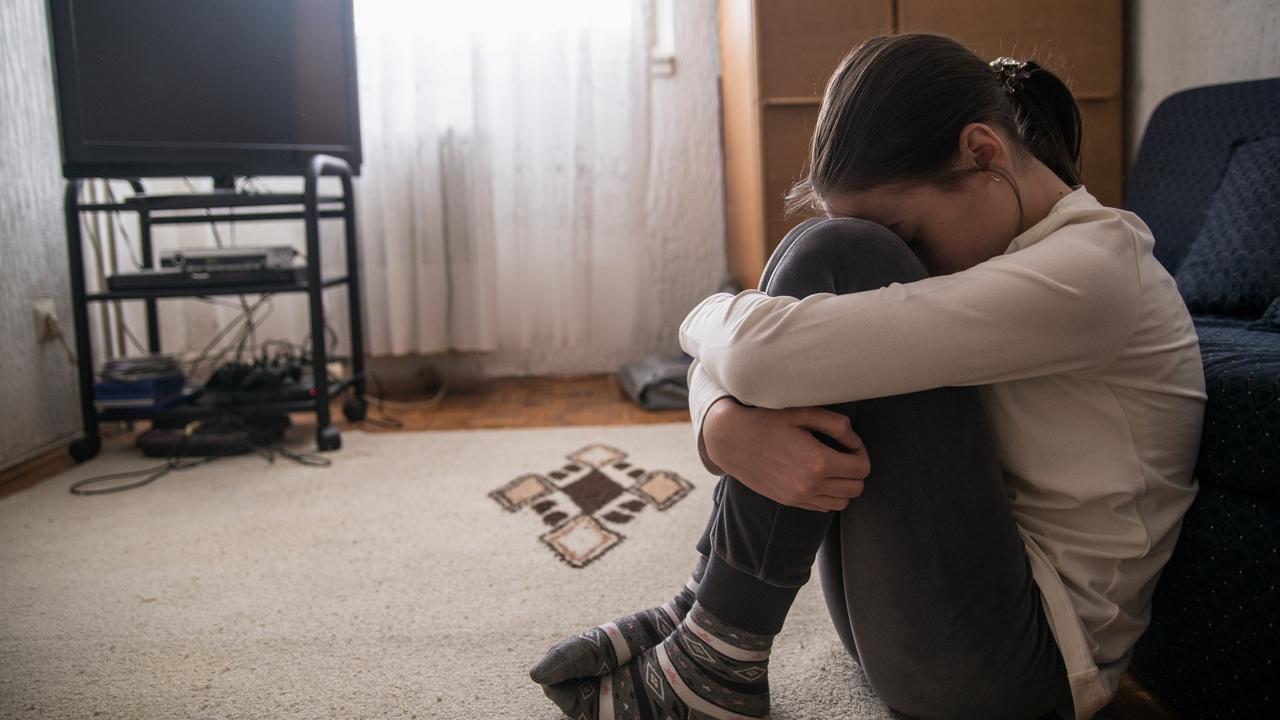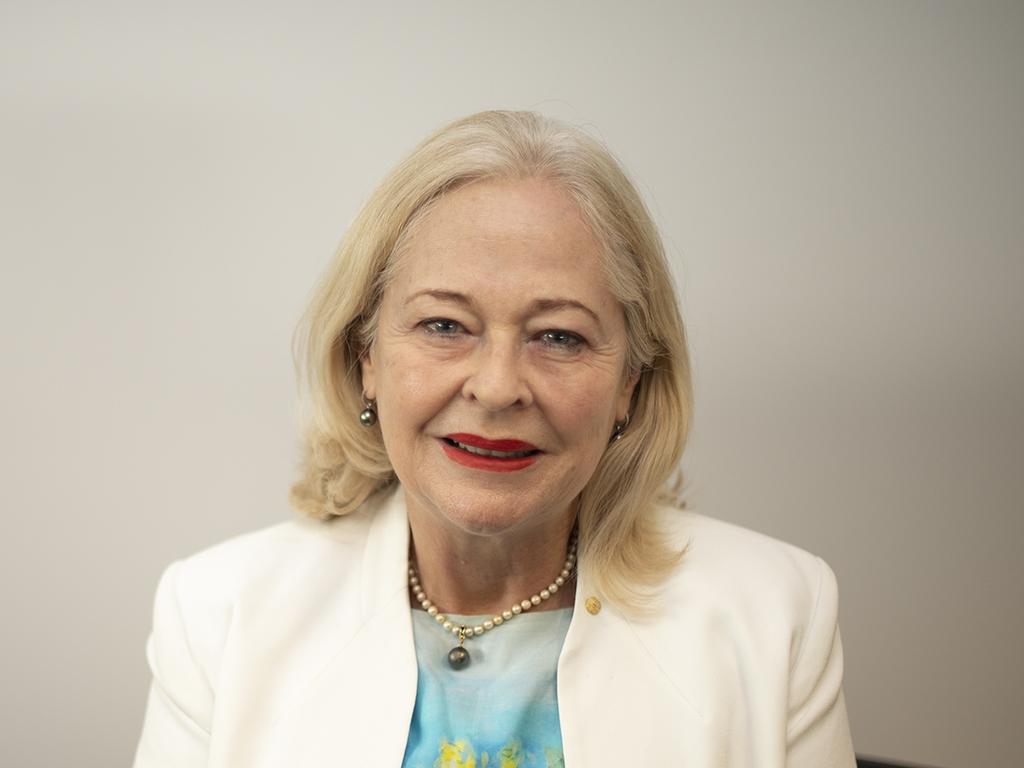Mackay visit from Women’s Safety and Justice Taskforce
Women and children are overrepresented in our watch-houses in ‘completely unsuitable’ facilities while sexual assault is underreported as myriad fears create roadblocks to justice.
Police & Courts
Don't miss out on the headlines from Police & Courts. Followed categories will be added to My News.
Women and children are overrepresented in our watch-houses in ‘completely unsuitable’ facilities while sexual assault is underreported as myriad fears create roadblocks to justice.
A taskforce dedicated to examining women and girls’ experiences in the criminal justice system seeks to hear from both victim-survivors of sexual violence as well as accused persons and offenders.
During its first community consultation session about its third discussion paper, the Women’s Safety and Justice Taskforce gained “useful insight” and perspectives in Mackay.
Former Queensland Court of Appeal justice Margaret McMurdo, who chairs the taskforce, said she was deeply concerned about the extent of sexual violence against women and girls.

The taskforce is examining community attitudes toward sexual consent, the barriers women and girls face in reporting sexual violence, and their experiences when they do report, both during the investigation and throughout the legal and court process.
“We know women and girls living in regional, rural and remote areas can face additional barriers to reporting sexual violence,” she said.
“These include social isolation and limited access to services and public transport.
“They can also face difficulties maintaining anonymity and privacy when reporting or accessing services.
“We want to know more about women and girls’ experiences in accessing these services in regional areas.
“We want to know whether living in regional areas impacts how women and girls experience incarceration, including youth detention and their reintegration back to their communities.
“We want to ensure Mackay and other towns in regional Queensland are allocated the resources needed to support women and girls in their interactions with the criminal justice system.

“Today we heard people who support women and girls, including those with multiple and complex needs, in Mackay.
“We met with sexual violence, domestic violence and youth justice service providers, as well as police, members of the legal profession and the local council.”
Ms McMurdo said she knew these topics could be sensitive and difficult to speak about but she urged women and girls to tell their stories so they could make recommendations to the Queensland Government to effect change.
“Most victims of sexual violence are women and girls. We need to hear about their experiences to help us understand what is working well in the criminal justice system and what needs to be improved,” she said.
“Today we heard the perspective of Mackay. We had really useful insight.
“We know a lot of sexual victims do not report ... often it is because they have had a previous negative experience with the police, or previous negative experience with authority in general.
“For child victims the decision is often made by parents as to whether they report and sometimes the parent might be looking after their own interests rather than the interests of the child in not reporting.

“Sometimes it is who the offender is. There might be cultural impacts on the family or they might be First Nations people or CALD (culturally and linguistically diverse) people – there is a big CALD community in Mackay — so they might be worried, if they report, the accused person wouldn’t be able to get a visa or stay in the country.
“In First Nations families, who the offender is could be culturally difficult and they might be worried what happens to them or pressure from within the community not to report.”
Ms McMurdo said another reason people were not reporting was the length of time it took for court cases to finish.
“They worry they might not be believed. They worry about having to tell their story over and over again and being retraumatised. They worry it might be all for nothing in the end and the person might be found not guilty, and reporting won’t change what has happened,” she said.
“We were told today that was often the reason; either it may have happened to the victim or it happened to someone the victim knew, like someone in the family, and then they often do not proceed with it.”
Ms McMurdo said it was impossible to predict the changes needed to rectify the situation at this early stage of the taskforce’s consultation in the community.
She said the taskforce would collate all submissions, verbally and written, before handing down a report at the end of June.
“I can’t say what our recommendations are at this stage,” she said.
“We just want to encourage people to make submissions whether they are victims or members of the family or police or people who work for supporting victims.”
Ms McMurdo also spoke about laws around what the media could report when it came to sexual offending and domestic and family violence.
“Queensland is out of step with the majority of Australian jurisdictions in not only allowing the reporting of domestic and family violence,” she said.
“Queensland is fairly unique, only the Northern Territory follows the Queensland position. It doesn’t report on the naming of the accused person in sexual offences until after the committal proceedings.
“Some people are arguing that should be changed because why should sex offences be any different to other violent assaults and it perpetuates the rape myth of women making stories up.

Access to services can be an issue for domestic violence victims in Mackay.
“The discussion we had today was very interesting because they emphasised this was a real challenge especially in small communities and they certainly thought (publication) should only be with consent of the victim, and children should be absolutely protected from having their identity disclosed.”
Ms McMurdo said there was also debate about what was disclosed on social media and how there did not seem to be any rules for such publishing platforms.
She said chat groups on mediums like Facebook had a lot of comments that raised concerns.
“There’s a huge amount of discussion about these issues on social media apparently and they said how difficult it could be in small communities with children being bullied at school,” she said.
Ms McMurdo highlighted the willingness of the Mackay experts to share their experiences, noting more support was needed in regional areas and for people living with various disadvantages.
“We also heard there is sometimes overcrowding in prisons and in youth detention centres, meaning women and children are being kept in watch-houses longer than the police would like to do so. They are not built for that purpose,” she said.
“If they are full, there are instances when even children have been held in watch-houses and, of course, there are no facilities built to cope with longer term detention and it is completely unsuitable.”
Mackay does not have a prison so people held in custody have to be taken to Rockhampton or Townsville when awaiting their next court date.
That does not always happen straight after they are denied bail.

Ms McMurdo said the taskforce would consider how consent was understood in the community and the impact of Queensland’s laws on women and girls who experienced sexual violence.
“The law sets out what the community considers is criminal behaviour deserving of conviction and punishment. The law works to prevent offences being committed as well as stating what must be proved to convict and punish offenders,” she said.
‘We need to hear your experiences and observations about why women come in contact with the criminal justice system as accused persons or offenders, their journey through the system, including sentencing and when in custody and transition back into the community.
“We will also look at how wider issues, such as the chronic over representation of First Nations peoples, diversity, trauma, disability, disadvantage and culture, and values and beliefs within the justice system impact on women and girls.
“We are encouraging people to make submissions and they can be made confidentially. They do not need to answer all the questions but just whatever their expertise is.”
The themes were chosen after extensive community consultation during 2021.
The discussion paper invites submissions from individuals with lived experience, community members, and organisations, professionals and academics working in these fields.
“The response to the taskforce’s first two discussion papers has been overwhelming with over 730 submissions received so far,” Ms McMurdo said.
“Each submission – whether from women and girls, organisations or professionals – is read, valued, and considered carefully. We greatly appreciate the time and effort people have put into making such a valuable contribution to our work.”
Submissions in response to the taskforce’s discussion paper are open until April 8, with a report delivered by June 30, 2022.
Submissions can be made securely (and confidentially if desired) online at www.womenstaskforce.qld.gov.au
* If anything in this article has brought up concerns, phone DVConnect Womensline on 1800 811 811 (24 hours, 7 days per week), Sexual Assault Helpline on 1800 010 120 (7.30am to 11.30pm, 7 days), or Lifeline on 13 11 44 (24 hours, 7 days).
More Coverage
Originally published as Mackay visit from Women’s Safety and Justice Taskforce









